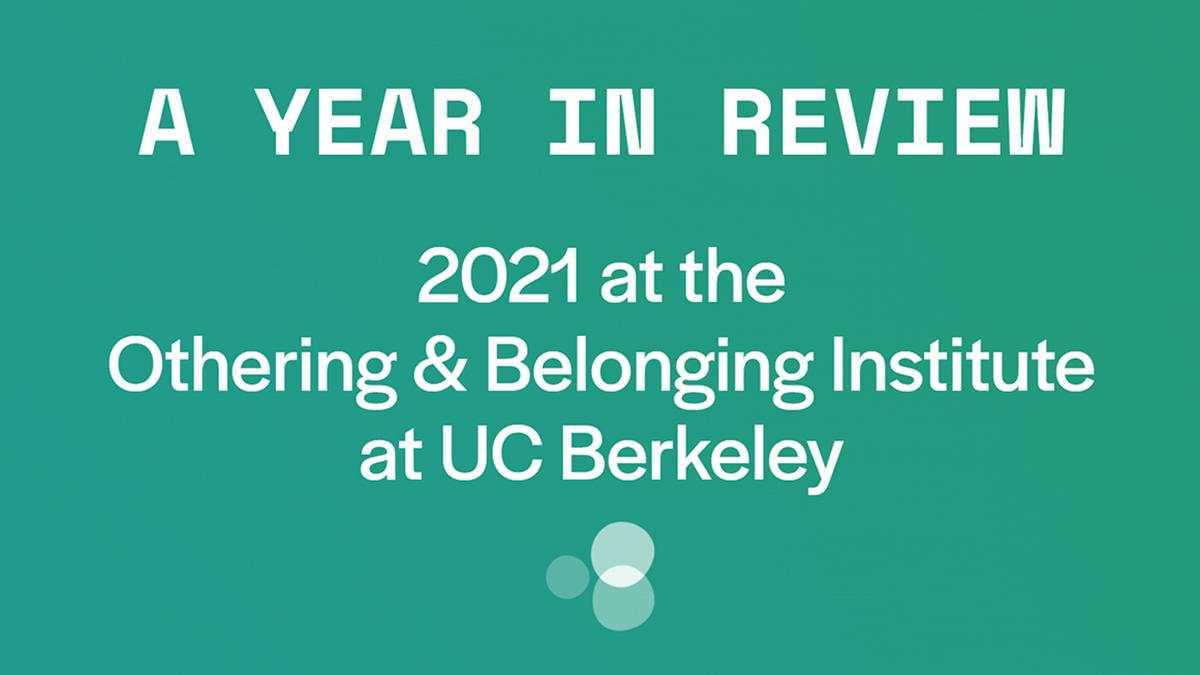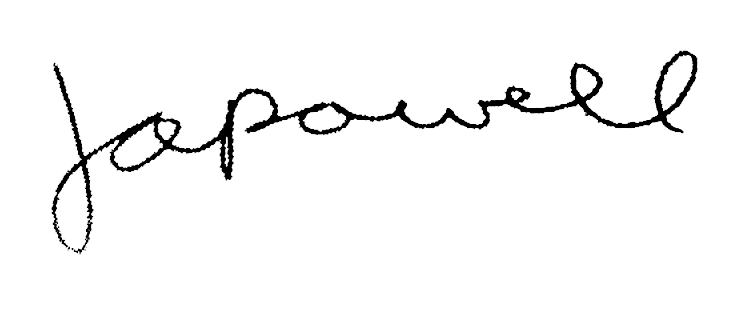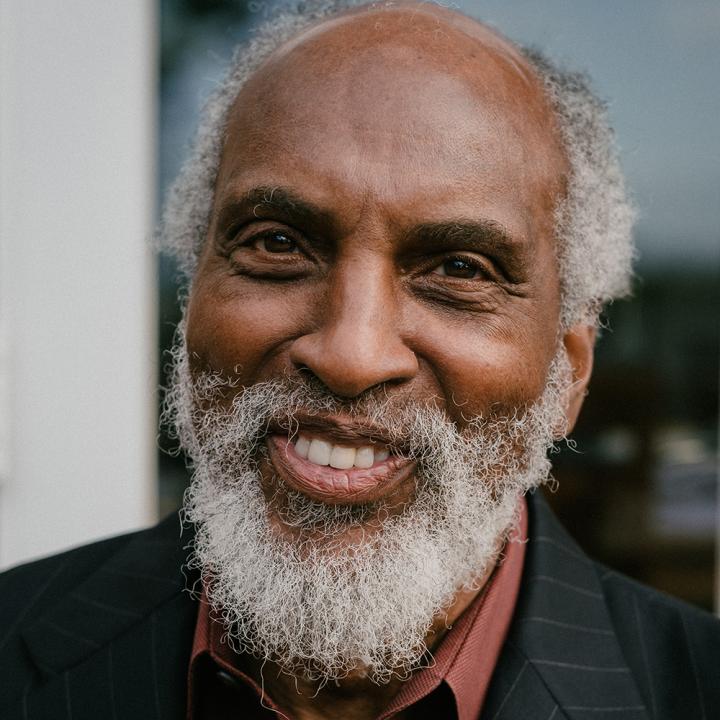A YEAR IN REVIEW
2021 at the
Othering & Belonging Institute
at UC Berkeley

By the Numbers
37
events
13
major reports
15
podcast episodes
1.1 mil
page views
108
speaking engagements
7
faculty clusters
Letter from the Director
At our 2021 Othering & Belonging Conference, I observed that while the mind often desires to be right, the heart wants us to be in relationship, even with those we may view as our “Other.” This, I believe, is one of the fundamental tensions we must urgently grapple with if we are to achieve our collective dream of transformative social justice and belonging.
Indeed, as our world grows ever more polarized, and we witness its apotheosis, the rise of war, I fear that this paradox may prove our greatest barrier to achieving the world we hope to build. The domination of the thinking brain—that complex organ that helps us find brilliant solutions to society’s greatest challenges, but which also confidently assures us that we are right and our opponents are wrong, that we are good and “they” are evil—has also helped us to lose sight of the other part of our mission, to move towards radical belonging, which includes everyone, even those with whom we disagree.
This year, I called upon those of us working towards social justice to embrace both the head and the heart, to remain open to engagement with those with whom we disagree, and to seek to view them in all their complex humanity. I believe this is a matter not only of spiritual health (as we are the first and central victims of the hatred and disgust we feel for others), but of the future of our society at large, which is now cracking under the pressure of deep polarization and widespread mistrust towards institutions and each other. And while the ideal of belonging and bridging continues to grow and find currency, so does polarization. We must work hard and with joy and love to make belonging real and operational in our daily and institutional lives.
Ultimately, I believe it is this call for radical belonging—our embrace of both head and heart, logic and empathy—which is the central mission of OBI as an applied research institution. It is a source of the clear and growing hunger for our call to embrace this both/and that has led to the rapid growth of our Institute and the increasing demands being made upon us.
In 2021, our website visits grew by 38 percent, to more than one million visits for the first time in our history as an organization, as more than 22,000 people from some 30 countries participated in online and in-person events we hosted or co-sponsored during the year. Our email list also grew by a stunning 72 percent, while our reach on social media channels similarly expanded. Our research was featured in hundreds of outlets including CNN, NYT, NPR, The Atlantic, HBO, the San Francisco Chronicle, CBS News and much more.
We have sought to meet this demand, nearly doubling our staff in recent years, and by adding a number of new programs and research areas, while developing our Europe work as part of a larger commitment to growing into a global force for good and belonging.
We hope that throughout all of this work, including the extensive research and activities detailed on the pages that follow, it is clear that we seek to maintain the both/and. That we practice bridging our own tensions while bridging with other people and institutions. We will continue to work with both the head and the heart, and all the learning from you, as well as the hard data and the deep relationships with people working on the ground and across sectors.
While this may not be the norm nationally, and although the seeds we are planting and the relationships we are building may not always bear immediate fruit, I am confident in the difference we are making, though the challenges remain great.
My thanks to a wonderful staff and to all of you who have joined this effort by becoming conscious individual and institutional bridgers, committed to making real the call for a world where we all belong to each other, are in relationship with the earth, and none are othered.



